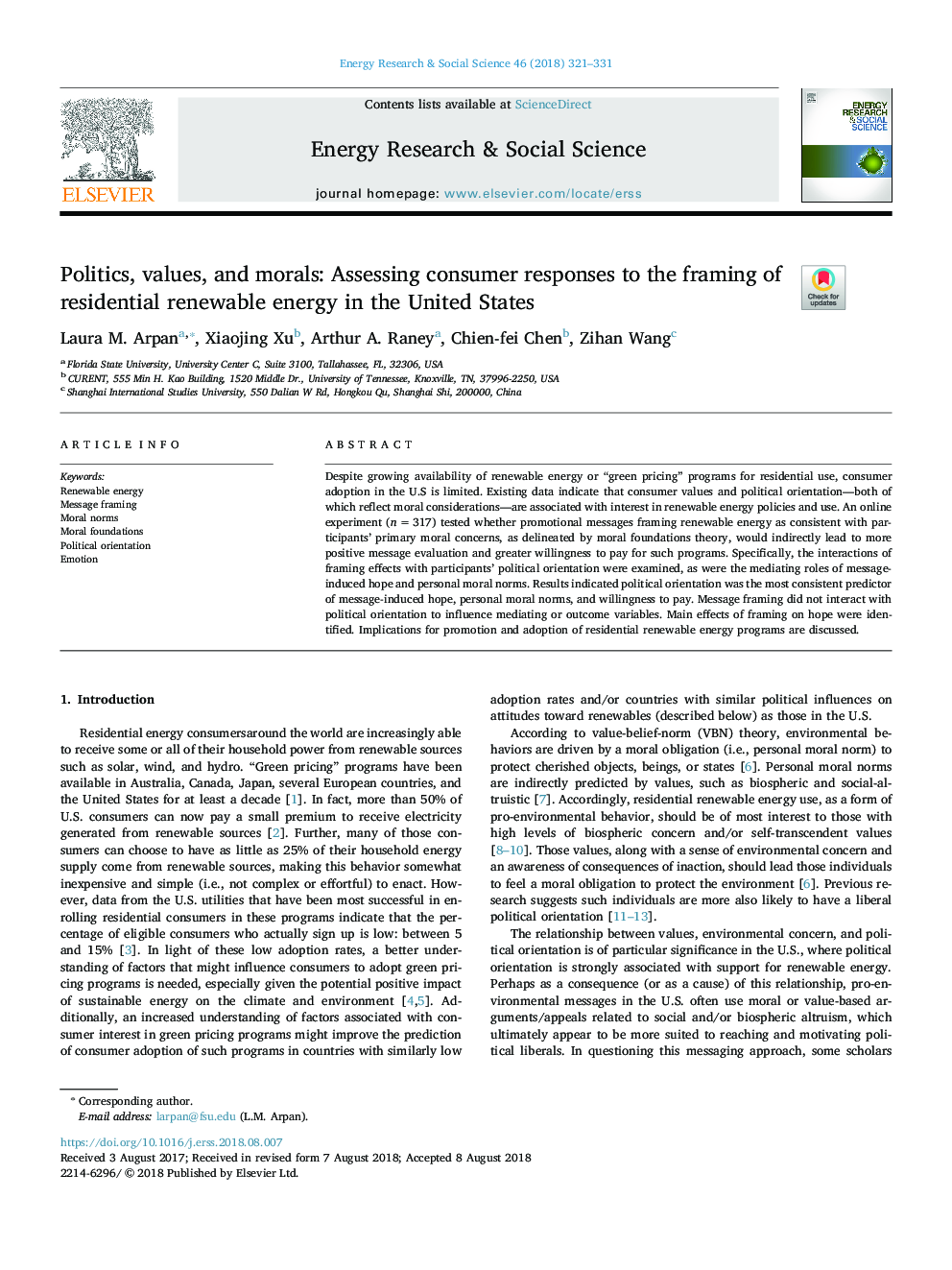| Article ID | Journal | Published Year | Pages | File Type |
|---|---|---|---|---|
| 11000182 | Energy Research & Social Science | 2018 | 11 Pages |
Abstract
Despite growing availability of renewable energy or “green pricing” programs for residential use, consumer adoption in the U.S is limited. Existing data indicate that consumer values and political orientation-both of which reflect moral considerations-are associated with interest in renewable energy policies and use. An online experiment (nâ=â317) tested whether promotional messages framing renewable energy as consistent with participants' primary moral concerns, as delineated by moral foundations theory, would indirectly lead to more positive message evaluation and greater willingness to pay for such programs. Specifically, the interactions of framing effects with participants' political orientation were examined, as were the mediating roles of message-induced hope and personal moral norms. Results indicated political orientation was the most consistent predictor of message-induced hope, personal moral norms, and willingness to pay. Message framing did not interact with political orientation to influence mediating or outcome variables. Main effects of framing on hope were identified. Implications for promotion and adoption of residential renewable energy programs are discussed.
Related Topics
Physical Sciences and Engineering
Energy
Energy (General)
Authors
Laura M. Arpan, Xiaojing Xu, Arthur A. Raney, Chien-fei Chen, Zihan Wang,
